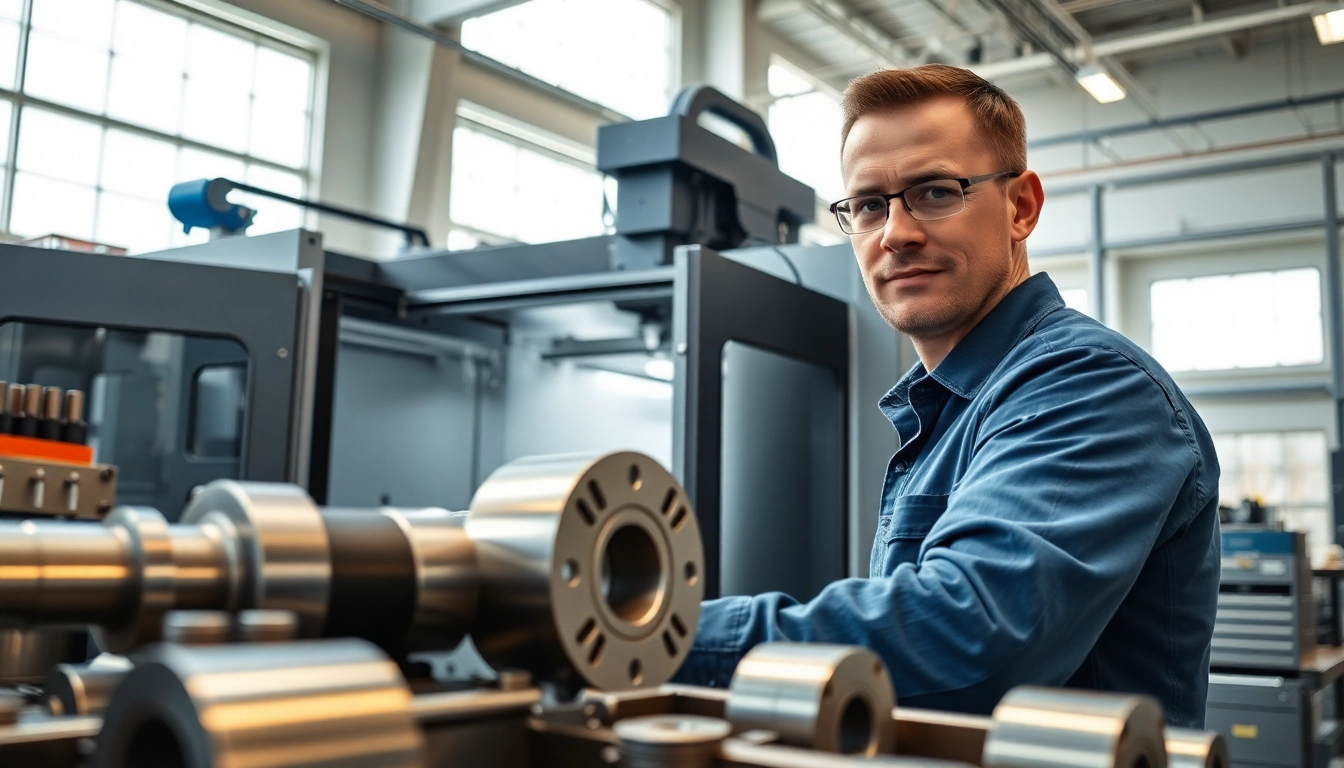
Understanding Metal Manufacturing in Edmonton
Edmonton has long been recognized as a hub for various industries, and at the forefront of this industrial landscape is metal manufacturing. This sector plays a crucial role not only within the city itself but also in the wider regional economy. As a metal manufacturer Edmonton, companies contribute significantly to numerous applications, from construction to aerospace. In this article, we will delve into the intricacies of metal manufacturing in Edmonton, exploring its technologies, quality control processes, how to choose the right manufacturer, and the future landscape of the industry.
Overview of Metal Manufacturing
Metal manufacturing encompasses a wide range of processes and techniques to create metal products. These range from simple components to complex machinery parts used in various applications. The processes can include casting, forging, machining, and welding, among others. The selection of specific methods often depends on the type of metal being used and the final application of the product.
Key Industries Served
Edmonton’s metal manufacturers cater to numerous industries, such as:
- Construction: Providing structural steel and fabricated metal components.
- Transportation: Manufacturing parts for vehicles, rail, and aerospace applications.
- Manufacturing: Supplying machinery and tools used across various production environments.
- Oil and Gas: Producing specialized equipment and piping systems that meet industry standards.
Importance of Local Manufacturing
Local manufacturing provides numerous advantages, including reduced lead times and transportation costs. Additionally, sourcing materials and components locally supports the regional economy and allows for better communication and collaboration between manufacturers and their clients. This nearness enables manufacturers to adapt quickly to industry demands, making them more competitive and innovative.
Technologies Shaping Metal Manufacturing
Advanced Machinery and Equipment
The metal manufacturing industry in Edmonton has embraced advanced technologies, including CNC (Computer Numerical Control) machines, laser cutting systems, and automated welding equipment. These innovations not only improve precision but also reduce the time it takes to produce metal components. Companies that invest in state-of-the-art machinery often see a significant return on investment through higher quality products and lower operational costs.
Automation in Metal Production
Automation stands as a cornerstone of modern metal manufacturing. With robotics and automated workflows, manufacturers can achieve consistent quality and efficiency. Automation helps reduce human error, speeds up production times, and enhances safety on manufacturing floors. As technology continues to advance, the potential for fully automated processes in metal manufacturing becomes increasingly viable.
Materials Used in Manufacturing
Different metallic materials offer unique properties that make them suitable for various applications. Common materials in metal manufacturing include:
- Steel: Known for its strength and versatility.
- Aluminum: Lightweight and resistant to corrosion.
- Copper: Excellent conductivity, often used in electrical applications.
- Specialty Alloys: Tailored compositions for specific performance requirements.
Understanding these materials’ properties allows manufacturers to select the most appropriate for their specific projects.
Quality Control in Metal Manufacturing
Standards and Certifications
Quality control is paramount in ensuring that manufactured metal products meet required specifications. Adherence to industry standards, such as ISO 9001, can enhance a manufacturer’s credibility. Certifications not only affirm product quality but also streamline processes and facilitate trade, especially in global markets.
Testing Processes
Various testing processes are employed to ensure the quality of metal products, including non-destructive testing (NDT), tensile testing, and metallurgical analysis. These tests help in identifying structural integrity and material properties, thereby preventing failures in the field. Established manufacturers often develop robust testing protocols to guarantee that their products comply with all industry standards.
Continuous Improvement Practices
In the competitive landscape of metal manufacturing, continuous improvement is vital. Many companies adopt methodologies such as Lean Manufacturing or Six Sigma to enhance efficiency and reduce waste. By fostering a culture of continuous improvement, organizations can ensure sustainable growth and adaptability in the face of changing market demands.
Choosing the Right Metal Manufacturer in Edmonton
Criteria for Selection
Selecting a suitable metal manufacturer involves evaluating several critical criteria:
- Experience and Expertise: Consider the manufacturer’s experience in your specific industry.
- Capabilities: Assess their production capabilities, including machinery, technology, and employee skill sets.
- Reputation: Research their standing in the industry through reviews and client testimonials.
Evaluating Capabilities and Services
It is essential to deeply analyze a manufacturer’s capabilities. Does the company provide full-service options, from design to delivery? Are they equipped for custom projects or just standard orders? Understanding their range of services and capacities helps ensure the right fit between your needs and what the manufacturer can deliver.
Customer Testimonials and Case Studies
Speaking with past clients or reviewing case studies provides invaluable insights into a potential manufacturer’s reliability and quality. Satisfied customers can offer firsthand accounts of their experiences, which can highlight strengths and weaknesses in the manufacturer’s service or product quality.
The Future of Metal Manufacturing in Edmonton
Emerging Trends and Innovations
The metal manufacturing industry continually evolves as technology advances. Trends such as smart manufacturing, additive manufacturing, and Industry 4.0 are gaining traction. These innovations enable manufacturers to create more intricate designs and improve efficiencies significantly.
Sustainability Practices
Sustainability is becoming increasingly important within the metal manufacturing sector. Companies are investing in practices that minimize waste, recycle materials, and reduce energy consumption. This shift not only benefits the environment but also appeals to a growing base of eco-conscious consumers and stakeholders.
Expanding Market Opportunities
As globalization progresses, Edmonton’s metal manufacturers can access broader markets. There is a growing demand for advanced metal products globally, providing local manufacturers opportunities to expand their reach. By embracing innovation and focusing on quality, local manufacturers can position themselves competitively in both domestic and international arenas.